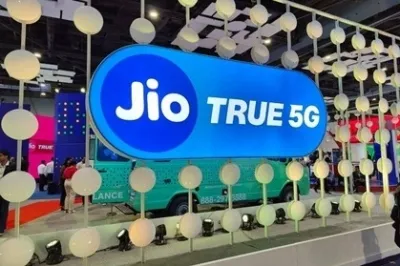How Can Jio's Cost-Effective 5G Solutions Help It Scale in the $121 Billion Global Market?

Synopsis
Key Takeaways
- Jio's 5G solutions can significantly impact the telecom market.
- Company's technology investments have surged, leading to increased patent filings.
- Strategic focus on developing AI-based solutions for network optimization.
- Jio's testing with 200 million+ subscribers showcases its scalability.
- The telecom infrastructure is evolving with open architecture opportunities.
New Delhi, Nov 7 (NationPress) As global 5G adoption remains limited, Jio's affordable solutions have the potential to propel its growth within the $121 billion global telecom technology market, as highlighted in a recent report by Jefferies. The brokerage maintains its projected 18/21 percent CAGR in revenues/EBITDA for FY26-28, while increasing its target EV/EBITDA multiple to 15x and updating Jio's EV to US$180 billion.
Jio Platforms has created a comprehensive suite of 5G technology solutions that encompass both mobility and home broadband services. Over the last two years, the company has ramped up its technology investments, reflected in a remarkable 13x increase in patent filings and a 4x rise in patent grants.
With a vision to shape the future of global connectivity standards, Jio has significantly boosted its contributions to 3GPP standards for 5G/6G by nearly 7x to 70 in recent times. The company is also developing AI-driven solutions aimed at optimizing network operations and expediting the adoption of Open Digital Architecture.
Given that global 5G penetration is notably low, especially in developing markets, Jio's 5G technology stack, successfully tested with over 200 million subscribers, presents a compelling cost-effective alternative that can catalyze further growth.
Jefferies anticipates robust growth, primarily driven by the expansion of the enterprise sector and the monetization of Jio's tech stack.
The network infrastructure landscape is heavily concentrated, with the top five players commanding 80 percent market share. These companies typically bundle hardware and software, which simplifies network management but comes at a higher cost. However, with the introduction of 5G and the rise of open architecture, these components are being decoupled, allowing software to capture a greater portion of the market value.










